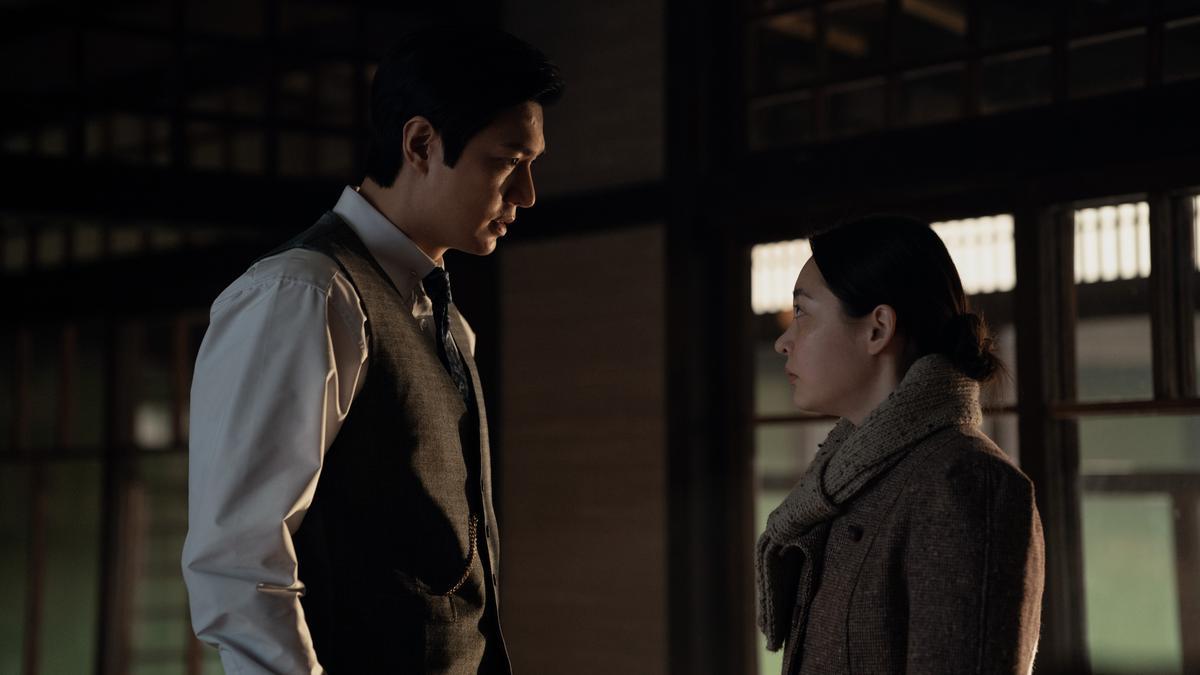
Early on in the first episode of the much-anticipated second season of “Pachinko,” American fighter planes drop pamphlets urging residents to petition the emperor to ‘halt this brutal war.’ It is the year 1945 in Osaka, and reminders of the Second World War and an imminent bombing pervade every corner of the city. For Sunja and her small family, this uncertainty is not only about survival but also about facing the profound challenges that war imposes on daily life.
Adapted from the best-selling and critically acclaimed novel by Min Jin Lee, “Pachinko” first captured audiences with its premiere in 2022. The series, composed of eight episodes, deviated from the linear narrative of the book, eschewing a sequential storyline for a dual timeline approach. The plot alternates between the 1940s, chronicling Sunja’s life in Korea and Japan during World War II, and 1989, which follows her grandson, Solomon Baek, as he returns to Japan from New York for a project tied to his finance job.
In the first season, Sunja navigates the trials of sudden pregnancy and adapts to life in Osaka after leaving Japanese-occupied Korea with her husband, Baek Isak (Steve Sanghyun Noh). As season two unfolds, Sunja’s burdens have only multiplied. Years have passed since Isak was imprisoned for helping laborers fight for fair wages, and her brother-in-law Yoseb (Han Joon-woo) now works in a factory in Nagasaki. Meanwhile, Sunja and her sister-in-law Kyunghee (Jung Eun-chae) fret over the worm-infested rations that her children may have to eat. “I am good at selling,” declares Sunja with a steely resolve, as she takes a risk by selling rice wine in the illegal black market to support her family.
The narrative then shifts to the late 1980s, where Solomon’s father, Mozasu (Soji Arai), is preparing to open a luxurious new Pachinko parlor. Solomon, on the other hand, steps into the business world anew, bringing together investors for his new venture after leaving his old firm at the end of the previous season. This change was propelled by a failed business deal and his emotional connection to a senior Korean immigrant who refused to sell her land.
“Pachinko” is a series that demands a nuanced unraveling on-screen, which was expertly executed in its debut season. With the impending threat of shows often not being renewed, “Pachinko” makes a triumphant return, taking its time to engage viewers with its delicate storytelling. The first episode of the second season is unhurried but engrossing, seamlessly establishing changes in the lives of its central characters after a time leap.
. Minha Kim embodies Sunja’s blend of helplessness and determination to provide for her sons, Noa and Mozasu, portrayed respectively by Kim Kang-hoon and Eunseong Kwon. The brothers are valuable additions to the show’s ensemble cast.
Mozasu is spirited, eager to “defeat the enemies,” as he declares during a government-mandated drill in preparation for invasions. In contrast, Kim Kang-hoon’s Noa carries the heavy burden of discrimination faced by Zainichis (Koreans living in Japan). When Noa endures his classmates’ taunts regarding his identity, the scene transitions to 1989. There, Solomon is disturbed by a racially motivated outburst from a Japanese bakery owner against his grandmother, Sunja (played by Yoon Yuh-Jung). “I’m from Yale University,” Solomon shouts back in a stark reminder of the enduring challenges across generations. Jin Ha expertly portrays Solomon as a character always on edge, a ticking time bomb. As he seeks a fresh start and strives toward his professional goals, his arc—with significant deviations from the book—promises to be intriguing this season.
The show also delves deeper into another pivotal character—Koh Hansu, performed by Lee Min-ho in a career-defining role. Season one unpacked Hansu’s complex backstory in an episode set against the backdrop of the 1923 Great Kanto Earthquake, directed by Kogonada. Hansu remains a looming presence in Sunja’s life, watching over her and her sons.
Soo Hugh, the showrunner, has reiterated the universality of “Pachinko,” a narrative that deftly explores love, loss, grief, and survival across generations. One of the show’s greatest strengths is its ability to steer clear of excessive melodrama, maintaining a poignant and grounded storytelling approach. The vast canvas and grand scale of “Pachinko” are beautifully juxtaposed with its somber yet impactful narrative. With its compelling start, season two continues to promise a poignant journey through its eight episodes.
The second season of “Pachinko” is currently streaming on Apple TV+, with new episodes released every Friday.












